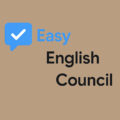IELTS Writing Task 2: Should Shops Be Allowed to Sell Unhealthy Food and Drinks? Band 6 vs Band 9 Response
In this post, we will examine two responses to the IELTS Writing Task 2 question:
“Some people think that shops should not be allowed to sell food or drinks that are scientifically proven to be bad for people’s health. Do you agree or disagree?”
We’ll show you a Band 6 and Band 9 response to this question, and discuss the reasons for the respective band scores.
Band 6 Answer
Response:
The issue of whether shops should be allowed to sell food and drinks that are scientifically proven to be bad for people’s health has been debated for a long time. I believe that while there are valid concerns regarding public health, shops should still have the right to sell such products. However, I think there should be more regulation and better education around these products.
On one hand, many foods and drinks, especially those high in sugar, fats, or artificial ingredients, have been linked to serious health problems like obesity and diabetes. Public health experts argue that banning these items in shops could help reduce the consumption of unhealthy food and improve overall health in society. It is clear that many people are unaware of the risks associated with certain products, and restricting access to unhealthy options might encourage healthier lifestyles.
On the other hand, I believe that people should have the right to choose what they want to buy. Restricting the sale of these products would be an infringement on individual freedom. Adults, in particular, are capable of making their own decisions and should have access to a variety of food and drink options. Additionally, banning certain products could have negative economic consequences, especially for smaller businesses that rely on selling popular but unhealthy items.
In conclusion, while I agree that there should be more awareness and education about the dangers of unhealthy food and drinks, I do not think shops should be banned from selling them. Instead, there should be more effort placed on educating consumers and encouraging healthier alternatives.
Why is this Band 6?
This response presents a clear opinion with adequate development of ideas. The argument is balanced, discussing both the pros and cons of banning unhealthy products in shops. However, there are some grammar mistakes (e.g., “I believe that while there are valid concerns regarding public health” — this could be more concise). The ideas are somewhat general and lack strong, specific examples. The essay could be more cohesive, with clearer linking of ideas. Additionally, the vocabulary is simple, and sentence structures are not as varied as in higher-band responses.
Band 9 Answer
Response:
The sale of food and drinks that are scientifically proven to be harmful to health has become a contentious issue in recent years. While I understand the concerns surrounding public health, I disagree with the idea of completely banning such products from being sold in shops. Instead, I believe a more balanced approach, focusing on education and regulation, would be a better solution.
One of the main reasons people argue for a ban is the rising rates of lifestyle diseases such as obesity, diabetes, and heart disease. Many of these conditions are closely linked to the consumption of unhealthy food and sugary drinks, and it is undeniable that these products pose significant health risks. Banning them could potentially reduce consumption and, in turn, lower the incidence of these diseases, leading to better overall public health. However, this approach overlooks the role of personal responsibility in making health-conscious decisions.
The main reason I disagree with banning these products is that it would infringe on individual freedom. Adults should be able to make their own choices about what they consume, as long as they are fully informed about the potential risks. Rather than imposing a ban, I believe the focus should be on increasing public awareness through education. For example, clearer labeling on food packaging, along with government campaigns promoting healthy eating, could empower consumers to make informed choices. Additionally, there could be stricter regulations on advertising unhealthy products, particularly to children.
Furthermore, a complete ban on these products could have significant economic consequences. Many businesses, especially small ones, rely on the sale of popular but unhealthy products to sustain their operations. A sudden restriction could lead to job losses and economic instability, particularly in industries that produce or sell these goods.
In conclusion, while I acknowledge the health risks posed by certain foods and drinks, I do not support banning them from shops. Instead, the focus should be on promoting education, responsible consumption, and more robust regulations to protect public health without infringing on individual freedoms.
Why is this Band 9?
This response is clear, well-organized, and cohesive. It provides a balanced argument, discussing both the pros and cons of providing free water and offering a practical solution. The ideas are fully developed, with specific examplesand a logical progression of thought. The vocabulary is sophisticated (“contentious”, “infringe”, “empower”, “robust”), and sentence structures are complex. Additionally, the response is cohesive, with clear links between ideas and an appropriate conclusion. The grammar is accurate, with no noticeable errors, making the response deserving of a Band 9 score.
Final Thoughts
Writing a high-scoring IELTS essay involves more than just answering the question. You need to develop your ideas clearly, use accurate grammar and vocabulary, and structure your essay logically. By understanding the differences between Band 6 and Band 9, you can better identify the areas you need to improve to achieve a higher score in your IELTS exam.
